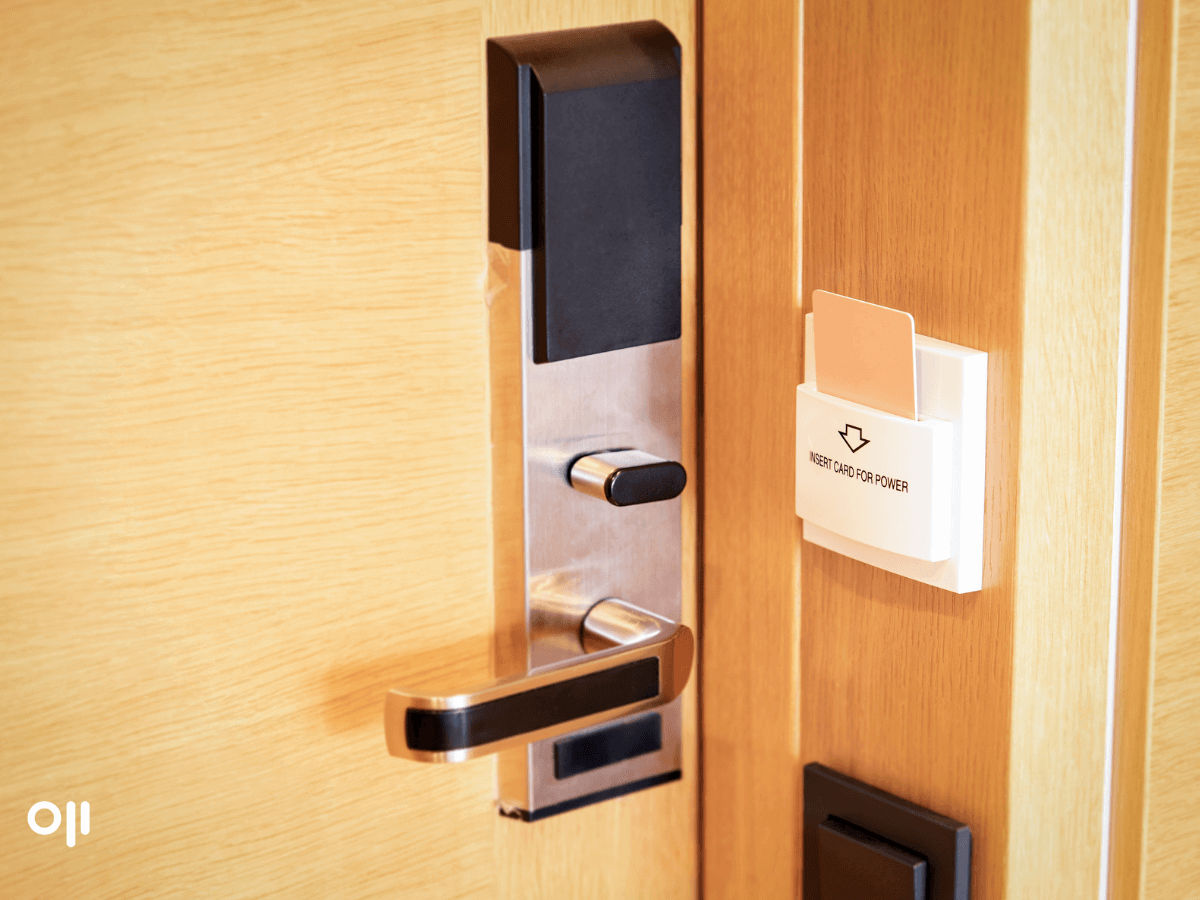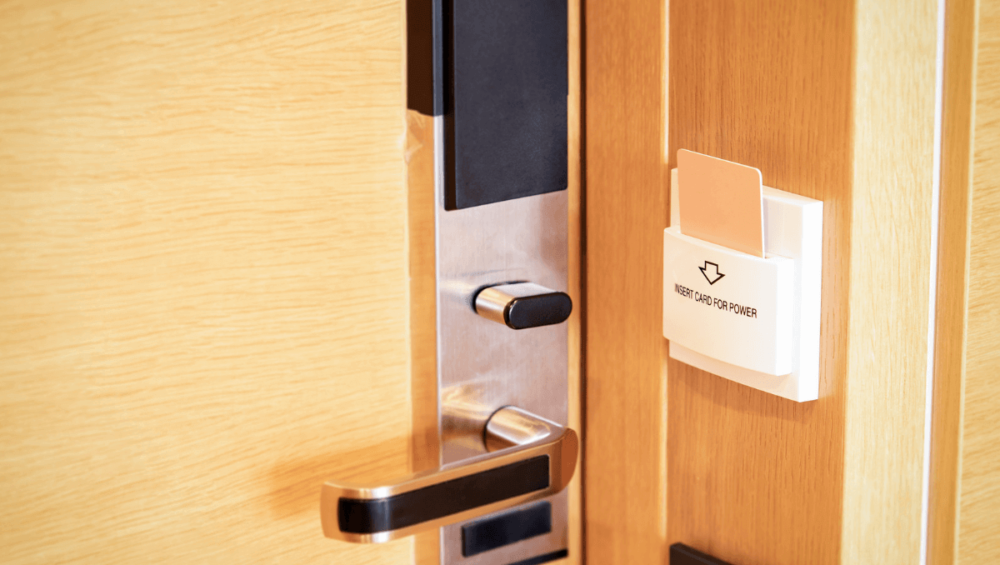Choosing the Right Locking System for Your Hotel

The Overlooked Amenity: Hotel Door Locks and the Guest Experience
When selecting accommodation, guests frequently assess the amenities on offer. An often-underestimated aspect that significantly shapes a guest’s experience is the hotel door lock system. Traditional keys and cards are susceptible to being lost or misplaced, often leading to inconvenient trips to the front desk and sometimes incurring replacement fees. Innovations in locking technology have not only streamlined hotel management but also notably enhanced guest satisfaction.
Radio Frequency Identification (RFID) Locking Systems
Introduced in the early 2000s, RFID locking systems revolutionized hotel security by offering a user-friendly alternative to the traditional magnetic stripe. Instead of the cumbersome process of inserting a card into a lock reader, RFID cards simply need to be held near the lock. Each lock is equipped with an RFID reader, which identifies the corresponding card and promptly unlocks the door.
RFID systems were meticulously engineered to overcome the limitations of magnetic stripe locks, such as damage or scratches on the magnetic strip which hinder the unlocking process. RFID cards house the sensor within the card itself, significantly reducing the possibility of damage. Furthermore, these cards can be reused, promoting efficiency and sustainability. However, RFID cards are not without their drawbacks; a significant disadvantage being the costs associated with replacing stolen, lost, or misplaced cards, which could reach up to a thousand dollars per month for a hotel.
Bluetooth Low Energy (BLE) Locking Systems
The advent of Bluetooth technology in 2014 brought mobile keys into the realm of locking systems. Mobile keys, accessed through a smartphone application, allow guests to unlock their rooms by merely holding their phones up to the door sensor. The sensor reads the encrypted key and provides access. Hilton and Marriott were the pioneer hotel chains to adopt this technology.
BLE locking systems boast an array of benefits, including extended battery life that can last 12 to 18 months without recharging, and reducing maintenance requirements. Most brands employ a robust 128-bit encryption security system, ensuring guest safety. With no physical keys or cards to replace, BLE systems can result in substantial long-term savings for hotels. Early adoption witnessed some reluctance from guests in downloading hotel-specific apps to access their digital keys, but with the proliferation of smartphones and increased tech literacy, this apprehension has diminished over time.
Full-Body or Unibody Locks
Integrated into the guestroom doors, full-body or unibody locks incorporate a reader and a handle within a single structure. They are typically constructed from stainless steel and are available in a diverse range of colors and finishes. These locks house their battery supply at the back for convenient recharging. Full-body locks offer ease of installation with minimal modifications required to the door. They are also an uncomplicated upgrade from magnetic stripe locks, thanks to their similar shape and surface area. However, these locks require resetting after each guest and can sometimes be challenging to install initially.
Hotel managers and owners bear the responsibility of ensuring guest safety. Smart locking systems offer an additional layer of security, thereby improving the overall hotel experience and potentially enhancing revenue. It is crucial for them to comprehend the needs and tech-savviness of their typical guests. Knowledge of guest demographics can aid in selecting the most suitable locking system for their establishment.
Frequently Asked Questions
Q: What is the importance of hotel door lock systems in the overall guest experience?
A: Hotel door lock systems are a significant aspect of a guest’s experience as they contribute to the guest’s security and convenience. Innovative technologies like RFID and BLE provide seamless access to rooms, reducing the risk of misplaced keys or cards and eliminating unnecessary visits to the front desk.
Q: How do Radio Frequency Identification (RFID) locking systems work?
A: RFID locking systems work by recognizing a designated card when it is held up to the lock. The lock has an embedded RFID reader which scans the card, authenticating the guest’s access and unlocking the door.
Q: What are the advantages and disadvantages of RFID cards?
A: RFID cards are durable and less prone to damage compared to magnetic stripe cards. However, one significant downside is the potential expense for the hotel, which can spend a considerable sum replacing stolen, misplaced, or lost cards.
Q: What are Bluetooth Low Energy (BLE) locking systems, and when did they begin to be used in hotels?
A: BLE locking systems utilize mobile keys downloaded onto guests’ smartphones. These keys are accessed through an application and used to unlock hotel room doors. This technology was first introduced to the hotel industry around 2014 by the Hilton and Marriott brand families.
Q: What are some of the benefits of BLE locking systems?
A: BLE locking systems offer several benefits, including long battery life and high-level encryption for enhanced security. They also save costs in the long run as there is no need for physical card or key replacements.
Q: What are Full-Body or Unibody locks, and what are their primary benefits?
A: Full-Body or Unibody locks are integrated directly onto the guest room door and comprise a reader and door handle within one unit. They are usually made of stainless steel and offer easy installation, minimal modifications to the door, and easy upgrades from traditional magnetic stripe locks.
Q: What considerations should hotel managers and owners keep in mind when choosing a locking system for their hotels?
A: Managers and owners should consider the security requirements, guest demographics, and comfort level with technology when choosing a locking system. These factors can influence the selection of a locking system that optimally enhances both guest experience and hotel operations.
Q: How does a guest’s comfort level with technology influence the type of locking system a hotel should implement?
A: If a hotel’s clientele is more technologically savvy, it may benefit from implementing advanced systems like BLE, which require the use of smartphones and applications. Conversely, if the guest demographic is less comfortable with technology, more traditional systems like RFID or Unibody locks might be preferable.



